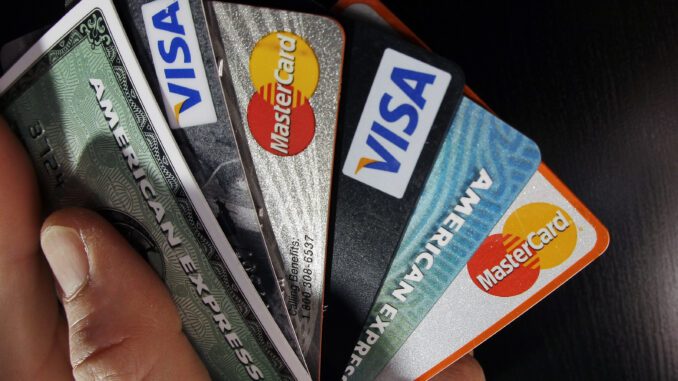
With inflation rising and hoped for travel plans put on hold, it’s no surprise many Americans are looking for travel hacks and rewards programs to fill in the gaps and get them on the road – or in the air again. But if you’re not careful, some supposed money-savers can cost you in the long run.
That’s where I come in. I used to be a middle school teacher, but now my full-time job is helping people maximize their points and miles for free travel. I know better than most where the pitfalls are.
The good news is, if you learn from these seven mistakes, you will be better off than 99% of people using rewards. You might be surprised that so many have to do with credit cards, but when banks are handing out $500 – $1,000 worth of free travel in sign-up bonuses alone, it’s a huge mistake to ignore them.
#7 Buying Miles
If you are a member of several frequent flyer programs, you’ll probably receive emails throughout the year to buy miles. Sometimes, the airlines offer a 25-50% bonus on miles you purchase. However, I rarely see a good deal on buying miles straight from the airlines with a bonus. The math doesn’t work out, and most of the time, you’ll probably pay more for the miles than your “free flight” is worth.
#6 Redeem Miles For Stuff In A Catalog
You’ve racked up some big sign-up bonuses and earned many points. The airlines are eager to offer you a catalog full of overpriced items to get those points back. When you redeem points and miles for travel, your points are generally worth 1 – 2 cents per point. But when you buy stuff in a catalog, you’ll get 0.4 – 0.7 cents.
If you want some free stuff, consider turning some of your points into cash or gift cards to a store where you can purchase that item. For example, I saw a Nespresso machine in a miles catalog for 30,000 points. Instead of buying it with miles, I used 12,500 points to get a $125 gift card to the exact same store. Then I bought the same machine on sale for $125!
#5 Trusting “Great” Offers In The Mail
If you have good credit, you will get marketing letters and emails from all the banks. They will entice you with some great “Limited-Time Bonus Offers.” What you may not realize is that some of these offers are less than what you can find online. Don’t let the marketing language fool you. Bonuses can vary as much as 50,000 points. Most people miss out on tens of thousands of miles simply because they don’t do a quick Google search or check a reputable site that posts the best offers available.
#4 Closing Old Accounts
Before I got into free travel, I didn’t know much about credit scores. I thought it would help me cancel old cards I didn’t use. So, I closed the oldest credit card account that I got when I was 18 years old. #Yikes. It killed my credit score. I lost several years of positive on-time payments and responsible credit use.
Instead of helping my finances, closing my oldest card hurt me badly. Make sure you always keep your oldest cards open. I recommend your first credit card be an “anchor card” that you keep forever. Get a solid “no annual fee” card or a card that can eventually be “downgraded” to a no annual fee card.
#3 Ignoring Your Significant Other
If you have a significant other, ignoring them is never a good idea. But it’s especially terrible when talking about free travel. Did you know that couples have separate credit profiles and separate credit scores? This means couples can double up on all the best cards. Each person can apply separately with their social security number.
It’s a common mistake for couples to think they both have a credit card account. Unless you filled out two separate applications, one is the primary account holder, and the other is the authorized user. You are allowed to each have a card as a primary account holder.
For example, instead of one Citi Premier Card, you could each get one and double your sign-up bonuses. Few people know this. Couples are missing out on hundreds of thousands of points.
#2 Forgetting You Have a Business
Did you know that you can get a business card if you can claim to earn just $1 through any side hustle? If you sell stuff on Craigslist, have a small consulting business, or operate several LLCs, you MUST look into business credit cards.
On average, business credit cards have higher sign-up bonuses than most personal cards. They often stay off your credit report, too. There’s an extra 100,000-200,000 points every year with minimal effort. Find out more about small business credit card eligibility here.
#1 Using The Same Rewards Card For Years
I hear this all the time with the average Joe. “Oh yeah, I love rewards. I’ve had my Southwest card for ten years. We get points for all of our spending and get free flights.” This is true, but Joe misses out on 100,000 points yearly. Loyalty is not “rewarding” for those who have used the same card for ten years. Joe is only getting 1 point per dollar on this card for everyday purchases, and he hasn’t benefitted from any sign-up bonuses in 10 years.
A family who only got one new card per year could easily earn $500 per year by maximizing new card offers. For example, you can get a new Southwest card bonus every couple of years, but you can also get more Southwest miles by getting a transferable card like the Chase Sapphire Preferred Card or Ink Business Preferred Credit Card, earning more points on dining and travel.
